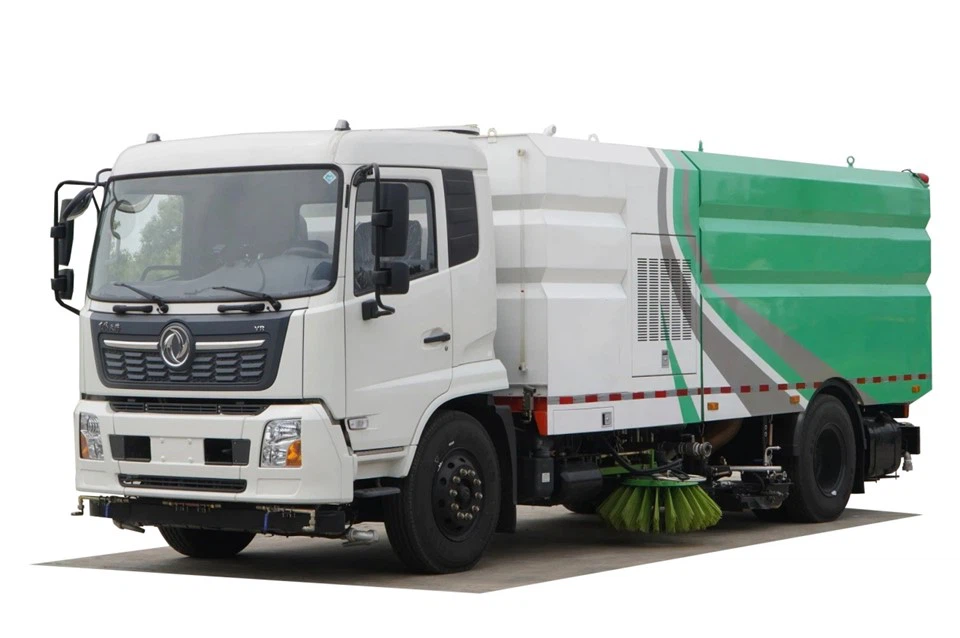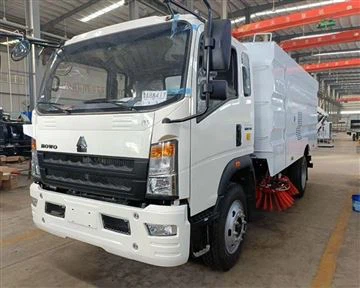Sewer Cleaning Trucks for Sale: A Comprehensive Guide

Sewer cleaning trucks play a critical role in maintaining the sanitation and cleanliness of urban environments. These specialized vehicles are designed to remove blockages, debris, and waste from sewer systems, ensuring the smooth operation of essential infrastructure. Whether you are a contractor, municipality, or private entity looking to invest in a sewer cleaning truck, this article provides a detailed guide on everything you need to know about sewer cleaning trucks for sale.
Understanding Sewer Cleaning Trucks
What is a Sewer Cleaning Truck?
A sewer cleaning truck is a specialized vehicle equipped with various tools and technologies to clean and maintain sewage systems. These trucks typically feature high-pressure water jets, vacuum systems, and tanks to collect waste material.
Types of Sewer Cleaning Trucks
There are several types of sewer cleaning trucks available for sale, each designed for specific tasks and environments. Here are the most common types:
- Vacuum Trucks: Ideal for sucking out sludge, debris, and liquids from sewer lines.
- Jetting Trucks: Equipped with high-pressure water jet systems to clear blockages.
- Combo Trucks: A combination of vacuum and jetting capabilities for versatile operations.
- Hydro-Excavation Trucks: Used for non-destructive digging and exposing underground utilities.

Key Features of Sewer Cleaning Trucks
Power and Performance
Look for trucks with powerful engines and high-capacity water pumps. The performance specifications should meet your operational needs, especially regarding flow rates and pressure levels.
Tank Capacity
The size of the water tank and waste tank is crucial, as it determines how much material the truck can handle between trips to the disposal site. Common capacity ranges include:
| Truck Type | Water Tank Capacity (Gallons) | Waste Tank Capacity (Gallons) |
|---|---|---|
| Vacuum Truck | 100-500 | 1,000-3,000 |
| Jetting Truck | 500-3,000 | Variable |
| Combo Truck | 500-2,500 | 1,000-2,500 |
Durability and Build Quality
Sewer cleaning trucks are subjected to harsh conditions, so durability is essential. Look for trucks made from high-quality materials, such as stainless steel or heavy-duty aluminum, to withstand wear and tear.
Choosing the Right Sewer Cleaning Truck
Assess Your Needs
Determine the volume of work you will be doing and select a truck that best matches those needs. For heavy workload operations, a truck with greater capacity and advanced features is necessary.
Consider Your Budget
Establish a budget for your purchase. Sewer cleaning trucks can range widely in price depending on features and equipment. It’s essential to balance quality with cost.
New vs. Used Trucks
Decide whether you want to purchase a new or used sewer cleaning truck. New trucks come with warranties and the latest technology, while used trucks can provide significant savings:
- Pros of New Trucks: Reliable performance, fully covered, latest technology.
- Cons of New Trucks: Higher price point.
- Pros of Used Trucks: Lower cost, immediate availability.
- Cons of Used Trucks: Potential for hidden defects, shorter lifespan.
Places to Buy Sewer Cleaning Trucks
Equipment Dealerships
Many dealerships specialize in heavy construction and utility vehicles. They often provide a wide range of new and used options, and you may have the opportunity to inspect the truck in person.
Online Marketplaces
Websites like eBay, Trucks.com, and specialized heavy equipment platforms offer many trucks for sale with detailed listings and seller information.
Auction Houses
Bidding at auction for used sewer cleaning trucks can yield significant savings, but it requires knowledge and caution. Inspect the vehicle thoroughly before bidding.
Private Sellers
Some sellers list their trucks directly online. While you may find a bargain, ensuring the vehicle’s condition and obtaining maintenance records can be more challenging.
Practical Tips for Maintaining Sewer Cleaning Trucks
Regular Inspections
Frequent inspections of your sewer cleaning truck’s mechanical components, water systems, and tanks can prevent costly repairs and extend the vehicle’s lifespan.
Cleansing Systems
After each operation, the jetting and vacuum systems should be cleaned thoroughly to prevent clogs and damage. Use appropriate cleaning agents to dislodge residue.
Routine Maintenance
Regular oil changes, filter replacements, and tire checks will keep your truck running efficiently. Follow the manufacturer’s maintenance schedule closely.
Operator Training
Ensure that all operators are adequately trained on using and maintaining sewer cleaning trucks to maximize efficiency and safety.
Environmental Considerations
Waste Disposal Regulations
Understand and comply with local waste disposal regulations. Proper disposal of the materials collected by the sewer cleaning truck is essential to avoid legal issues and environmental harm.
Eco-Friendly Technologies

Some modern sewer cleaning trucks include eco-friendly features, such as recycling systems for cleaning water and biodegradable cleaning agents. Consider investing in such technologies to minimize environmental impact.

Cost Analysis
Initial Purchase Price
The upfront cost of a sewer cleaning truck can vary based on its features and capabilities. Analyze your budget to locate a cost-effective solution.
Operational Costs
Consider ongoing expenses, including fuel, maintenance, and insurance. Budgeting for these costs ensures sustained operations without financial strains.
Return on Investment (ROI)
Evaluate the potential ROI of your sewer cleaning truck. Factors affecting ROI include job volume, frequency of use, and market demand for sewer cleaning services.
Frequently Asked Questions (FAQ)
1. What should I look for when buying a sewer cleaning truck?
Look for performance specifications, tank capacity, durability, and consider your specific needs and budget.
2. How much does a sewer cleaning truck cost?
The cost varies widely, ranging from $50,000 for used trucks to over $300,000 for new, high-end models.
3. Are used sewer cleaning trucks reliable?
Yes, but it’s crucial to inspect them thoroughly to avoid hidden defects. Look for maintenance records and choose reputable sellers.
4. How often should I maintain my sewer cleaning truck?
Follow the manufacturer’s guidelines for routine maintenance and conduct regular inspections after each use.
5. What are the environmental regulations regarding sewer cleaning?
Regulations vary by location, but always ensure proper disposal of waste materials and consider eco-friendly technologies.
6. Can I rent a sewer cleaning truck instead of buying one?
Yes, many dealerships and equipment rental companies offer sewer cleaning trucks for short-term or long-term rentals.
